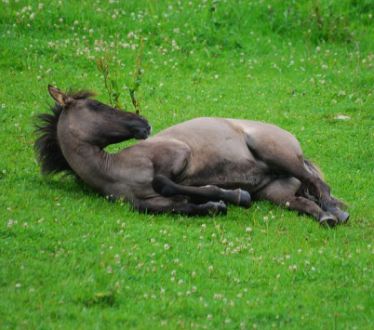Colic in horses is the behavioral manifestation of abdominal pain, and can be caused by a wide variety of conditions. Many of these conditions are life threatening, and therefore it is essential to diagnose and treat cases of colic as quickly as possible or refer them to a surgical facility. The most common causes of colic are gastrointestinal such as mucosal irritation, intestinal spasm, distention of the bowel, tension on the mesentery or ischaemia of the gut wall. These are all categorised as visceral pain. It can also be caused by other abdominal conditions in which case, it is often called false colic. Treatment of colic is largely dependent upon identifying the underlying reason for the pain, and treating this cause appropriately. Most commonly this is done medically, but in a small percentage of cases, surgical intervention is needed. Among domesticated horses, colic is a major cause of premature death. The incidence of colic in the general horse population has been estimated between 10 and 20 percent on an annual basis. It is important that any person who owns or works with horses be able to recognize the signs of colic, so that a veterinarian may be called promptly, before the horse's condition deteriorates.
Content
See Also
Further Reading
References
Subcategories
This category has the following 9 subcategories, out of 9 total.
A
B
C
D
E
F
I
M
S
Pages in category "Colic in Horses"
The following 5 pages are in this category, out of 5 total.
